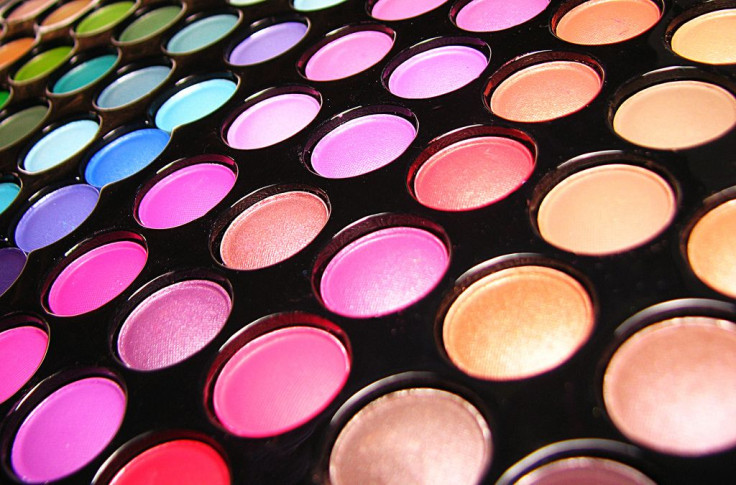Personal Care Products Safety Act Plans To Ensure Regulations On The 168 Chemicals Women Use On Their Bodies

As women, we all have our own beauty regimen that we do each day to transform ourselves into the goddesses we truly are. Whether it involves creams, different types of makeups, or fancy shampoos, it takes a lot to create the Beyoncé-coined “I woke up like this” look. But are our glamourous routines potentially affecting our health?
According to a recent statistic by a nonprofit group, American women put an average of 168 chemicals on their body each day. And while many of these chemicals may be harmless, this is still a cause for alarm as federal regulations on chemicals within personal care products have not been changed since the 1930s.
Luckily, Sens. Dianne Feinstein (D-Calif.) and Susan Collins (R-Maine) are taking initiative to rectify the potential health threats within our favorite beauty products. “From shampoo to lotion, the use of personal care products is widespread; however, there are very few protections in place to ensure their safety,” Feinstein said in a statement to ABC. By introducing a new amendment to the federal food, drug, and cosmetic act, which they call the Personal Care Products Safety Act, Feinstein and Collins hope to ensure harmful chemicals do not make it into our daily routines.
The 98-page bill offers many promising changes to the current system, outlining a plan of registration for personal care companies, their products and the ingredients within these products. The bill also requires the FDA to review five chemicals commonly found in most personal care products each year and evaluate their safety for use. The first set of chemicals is already defined, consisting of diazolidinyl urea, lead acetate, methylene glycol/formaldehyde, propyl paraben, quaternium-15.
Working with the nonprofit Environmental Working Group, a well-known supporter of chemical regulation in personal care products, both Collins and Feinstein established the outline of their bill. The Environmental Working Group notably started the Skin Deep Database, a first of its kind tool that allowed consumers of personal care products to look up the types of chemicals in their favorite cream, soap, etc. The database also informs the consumer as to whether or not these chemicals were associated with health risks.
The Environmental Working Group described to ABC how this bill is long overdue. “These are basic tools that should have been granted to the FDA decades ago but are only now being provided in the Feinstein-Collins bill," said Scott Faber, Environmental Working Group's vice president of government affairs. "Cosmetics are sort of the last unregulated area of consumer products law. I can't overstate how little law is now on the books. The FDA virtually has no power to regulate the products we use every day."
And this is particularly distressing, as the Environmental Working Group found that women use a total of 12 products each day, containing the 168 aforementioned chemicals. Men use fewer products than women but are still putting an average of 85 chemicals on their bodies per day. Teenagers came in with the most product use, putting an average of 17 personal care products on daily. When testing these teens to see if the chemicals would appear within their bodies, the Environmental Working Group found 16 hormone-altering chemicals in the teens’ blood and urine, including phthalates.
While attempts to change the relaxed regulations on chemicals in personal care products have failed in the past, this time around the bill has the backing of bigger companies like Johnson and Johnson, and Revlon. However, some are worried that the new FDA required chemical approvals will be too much for smaller brand companies. According to Angela Diesch, attorney for the practice Kronick, Moskovitz, and Girard, the cost of this bill for cosmetic companies may be something to consider.
“This bill will result in significant costs to cosmetic manufacturers — and it is likely to be felt hardest by smaller companies,” Diesch told Cosmetic Design. “Although the bill provides for an exemption from facility registration for ‘small businesses,’ other aspects of the bill are enforceable against ‘small businesses’ — thought at different time frames in some instances to a lesser extent.”
Diesch also notes that if you feel this will compromise the sale of your favorite product, it may be time to speak out. “If passed, this bill will result in a major overhaul to the cosmetics industry and FDA’s oversight. This is a bill to watch, and, perhaps a reason to contact your legislators if you want your company’s story and to know how this bill will affect it,” she said.
The Personal Care Products Council, on the other hand, believes that this will ultimately lead to an improvement for the industry in both the quality of their products and the satisfaction of their customers. “While we believe our products are the safest category that FDA regulates, we also believe well-crafted, science-based reforms will enhance the industry’s ability to innovate, and further strengthen consumer confidence in the products they trust and use every day,” said a Personal Care Products Council rep. “The current patchwork regulatory approach with varying state bills does not achieve this goal.”
And while this bill may be contested by some, it does seem to be a step in the right direction. As we continually regulate food and medications for unsafe chemicals, it only makes sense to do the same for the beauty and care products we use every day. Beauty may be pain, but it does not have to compromise our health in the process.



























